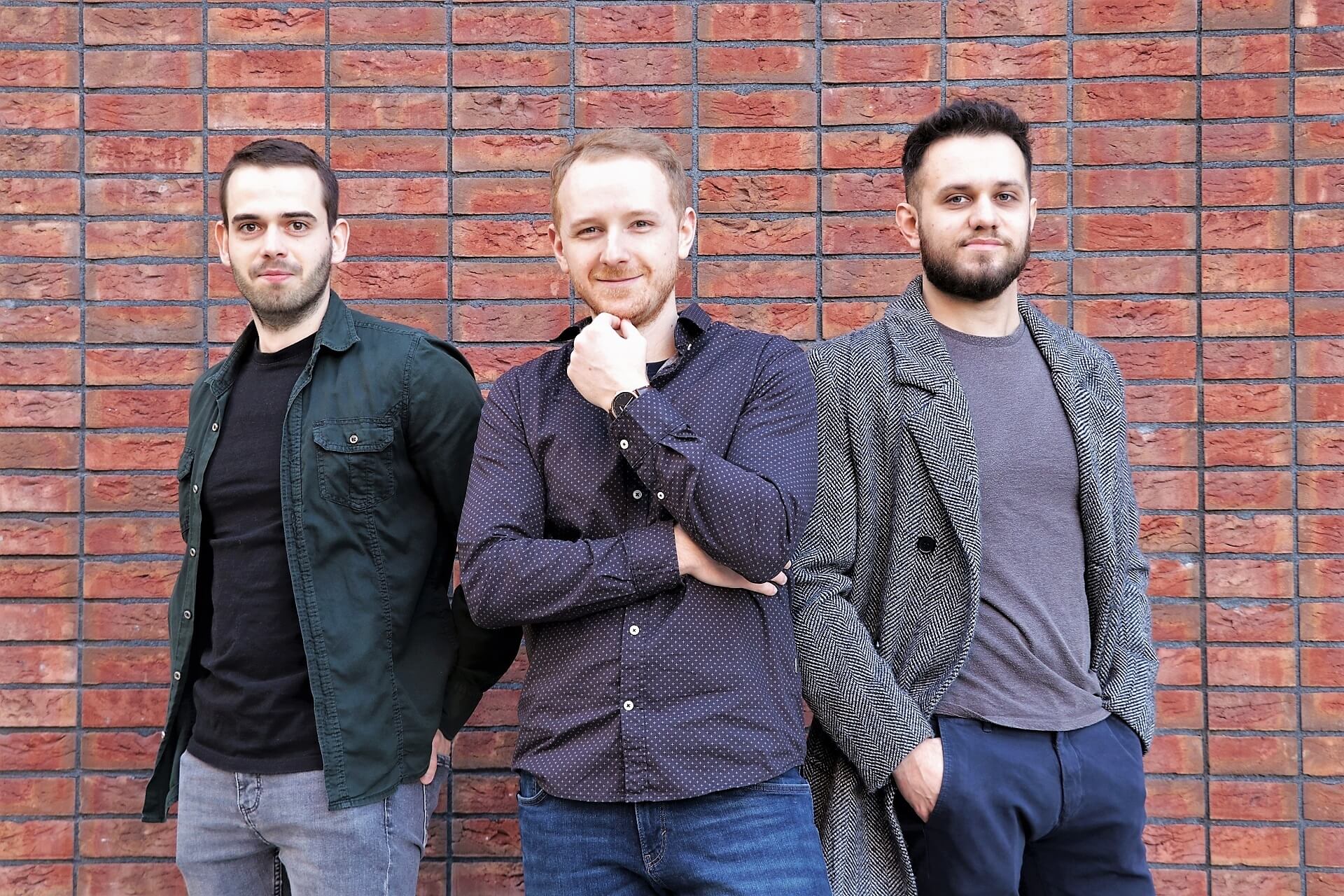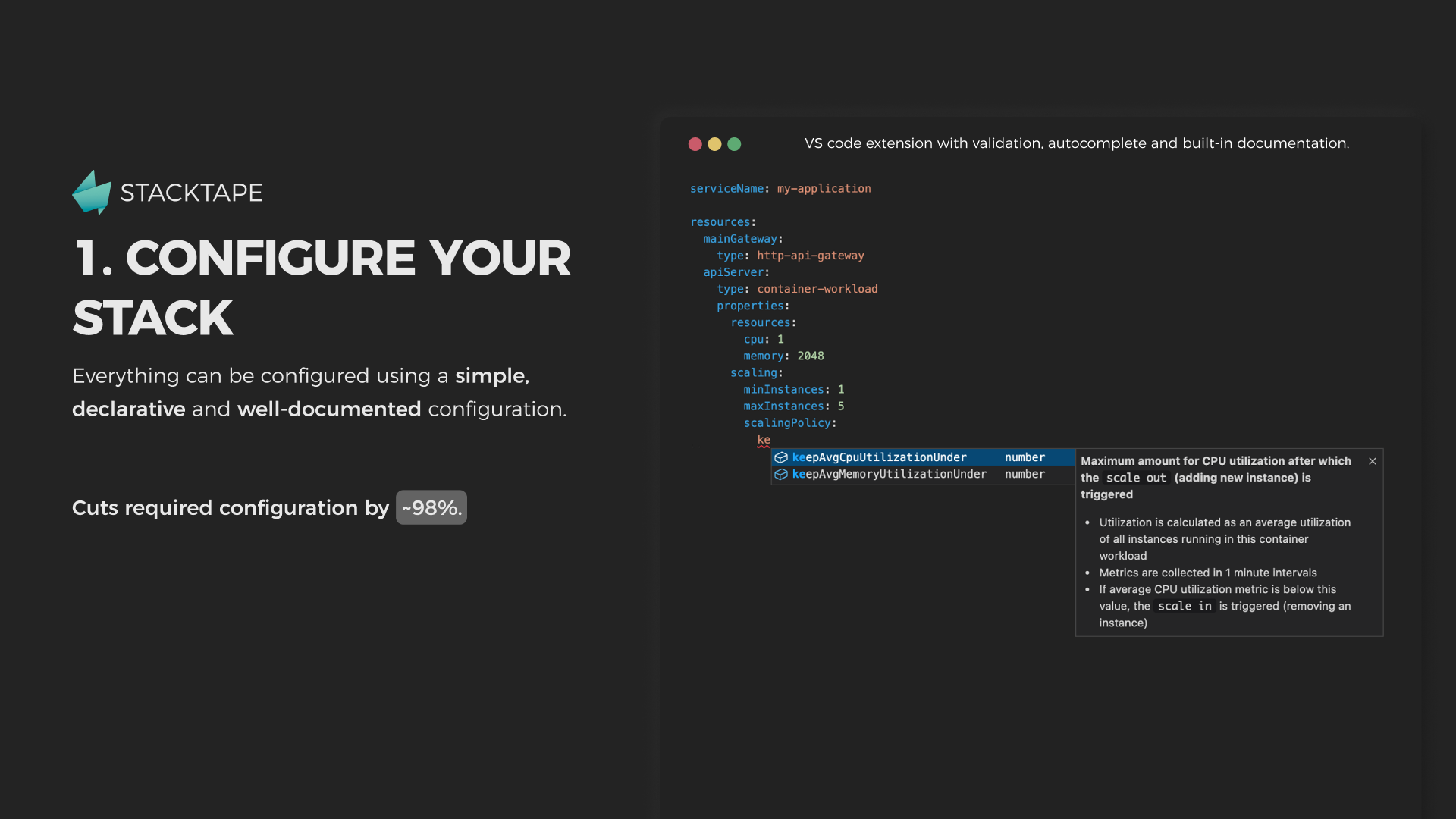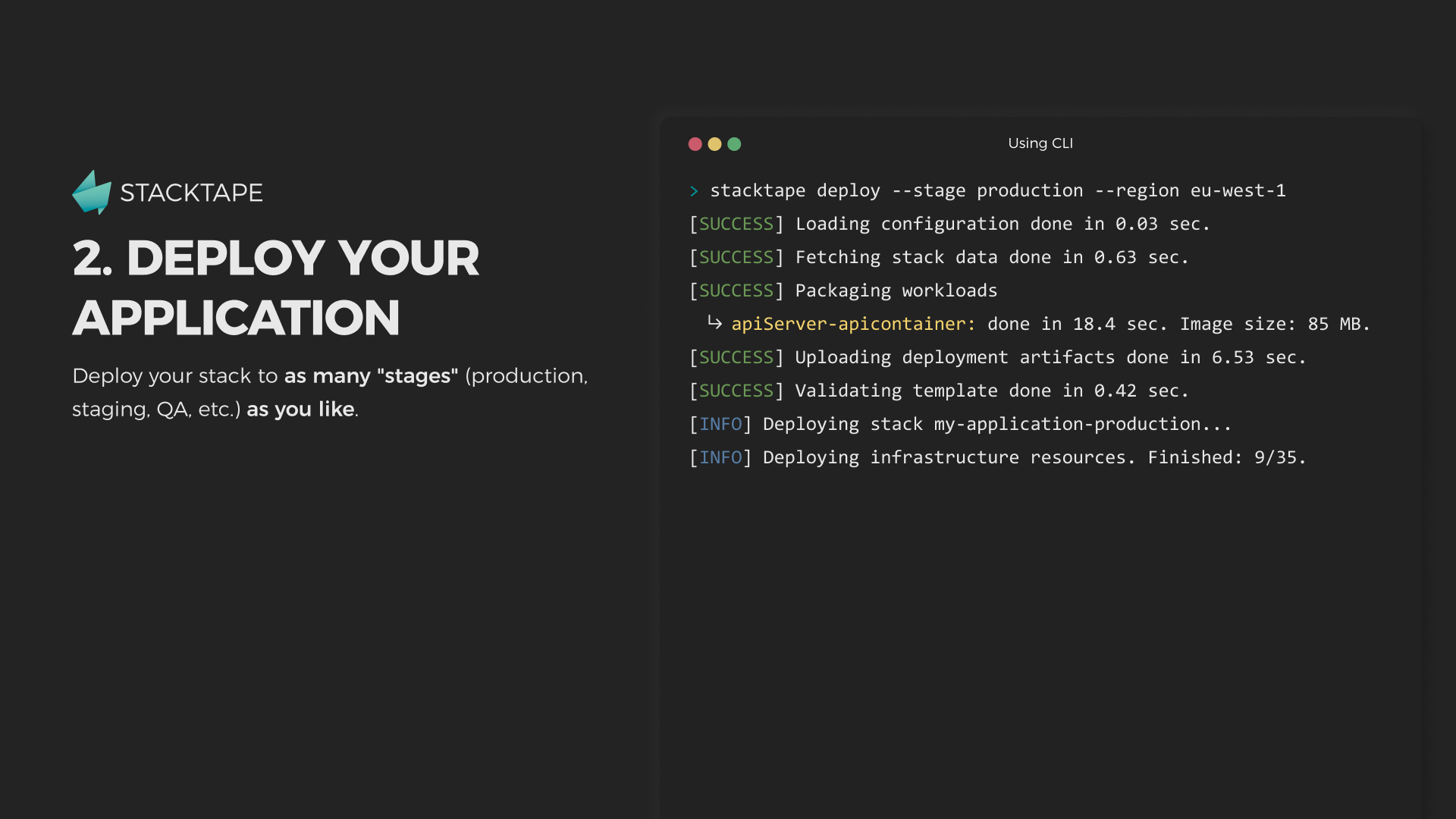Meet Stacktape: your DevOps team in a single tool.
Today it is our pleasure to unveil a new startup from the StartupYard Remote Lab program. Stacktape is a DevOps-free cloud development framework that is meant to be easy to use and powerful at the same time. We sat down with Matúš Čongrády, CEO and co-founder of Stacktape to talk more about what they do and their plans for the future.
Hi Matúš, tell us a bit about your personal journey towards founding Stacktape. How did you get here?
I’ve worked as a software engineer for several startups and worked on multiple global products.
When it comes to development of new features, developers generally like the job and know how to do it. The problem comes when you need to run the application in production. It’s annoying and not fun at all. It’s also insanely complicated.
But still, somebody had to do it. And that somebody was usually me.
Along the way, I’ve learned a lot. And I also realized how many other developers and companies are struggling with this.
I had an idea how this could be automated. And so I started working on Stacktape.

The Stacktape founders
Who is Stacktape for and what problem are you solving?
DevOps, Cloud and infrastructure experts (the ones responsible for running the application in production) are the most demanded IT professionals. They’re also the most expensive.
And it’s not surprising. AWS, the largest and most widely used cloud computing provider, has over 200 services and 10,000’s of pages of documentation. Even to run an average application, you need a tremendous amount of knowledge and experience. You also need to write 1,000’s of lines of configuration, deployment scripts, build pipelines, etc. And even if you make it all work, it’s likely far from optimal.
Stacktape automates all the DevOps tasks. Using Stacktape is simple – it doesn’t require any DevOps or Cloud knowledge and can be done by any developer. You only need ~2% of the configuration, everything is production-grade and highly optimized from day 1.
So you get the value of a DevOps team and for less than 10% of a single DevOps salary. Right now, not after several months.
What are you trying to accomplish with Stacktape that you think no other platform has been able or willing to do?
Imagine you and your team want to run your application in the cloud.
You can choose a low-level and very complex solution like Terraform or Kubernetes. Unfortunately, it will take months before your application is production-ready and you’ll need experienced DevOps experts.
Or you can choose a higher-level, easy-to-use solution such as Firebase or Serverless. It will take only a few days to deploy your application. Sadly, for anything other than a very simple application, you will inevitably realize there’s something you desperately need but your solution doesn’t support.
Before Stacktape, you could choose either “powerful” or “easy”. With Stacktape, you don’t have to. It’s both.

Stacktape, easy and powerful
Can you tell us a bit more about how your technology really works from the point of view of a developer?
Stacktape is a DevOps-free cloud development framework.
For example, to deploy a production-grade REST API, you need just ~30 lines of configuration. That’s a lot less than ~600-800 lines of Terraform or AWS CloudFormation.
Stacktape is built on top of AWS and integrates other popular cloud service providers (such as MongoDB Atlas). It supports 20+ infrastructure components, including Container workloads, Lambda functions, SQL databases, Load balancers, Kafka topics, Batch-jobs, Redis clusters, and more.
Besides infrastructure management, Stacktape handles source code packaging, deployments, local/remote development, and much more. It also comes with a VScode extension and local development studio (GUI).
You can deploy anything from simple APIs and web front-ends to complicated data-processing pipelines.

Easy deployment with Stacktape
So if you are a developer, what do you need to get started with Stacktape?
Just install Stacktape and start deploying. There are no special steps required. Stacktape runs on your machine (or on a continuous integration server) and works with your existing AWS account.
You can follow the steps at https://docs.stacktape.com/getting-started/setup-stacktape/
How big is the team and why are they a good match for this project?
We are a team of 3.
We have experienced the problem ourselves and worked on it from multiple angles in several different companies. We are early cloud adopters, and we’ve used almost all of the existing solutions on the market. We know exactly where they fall short and how to address most of their shortcomings.
Who is the ideal customer for Stacktape?
Any company that is using AWS or is considering moving to the cloud.
We’re currently focused on SMBs, but we’re already preparing to go upmarket and serve enterprise customers as well.
Why would a company use Stacktape?
Compared to hiring DevOps experts or paying for consultants, you can save 90-95% of your budget. Also, your time to market will be significantly lower (few hours to 5 days vs. 3-12 months).
Furthermore, Stacktape lowers infrastructure bills, improves developer productivity and makes your infrastructure significantly more manageable in the long term.

Stacktape: your DevOps team in a single tool
What have been your team’s biggest personal or professional challenges in making this project a reality?
Stacktape is meant to be easy to use and powerful at the same time. It’s either that, or it’s just another half-baked solution. There’s no MVP we can build in a few weeks. Even though we consulted every part of Stacktape with a lot of developers, we got comprehensive feedback only 2 years after we started working on it. That uncertainty was very frustrating.
Stacktape also required countless hours of work. We needed to change our API and re-architect the whole project several times. There were times when I thought there was no way a small startup could build such a large and complex product. Any reasonable person would give up and go back to a well-paid, stress-free job.
Luckily, we like challenges.
Talk a bit about your experience with StartupYard. What were the surprises, challenges, highs and lows?
The biggest surprise is that there was none. StartupYard has delivered exactly what was promised.
I also appreciate the fact that people at StartupYard genuinely care about us. We don’t feel alone on our journey.



